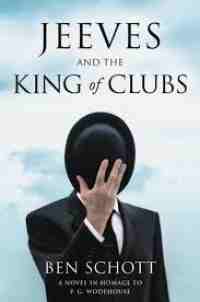Territory of Light by Yuko Tsushima
 Wednesday, February 13, 2019 at 9:47AM
Wednesday, February 13, 2019 at 9:47AM 
Published in Japan in 1993; published in translation by Farrar, Straus and Giroux on February 12, 2019
Territory of Light is a short novel set in the mid-1970s that covers one year in the life of a woman whose husband unexpectedly announces his separation from her life. The unnamed narrator has always considered herself a loser, and her husband’s decision to leave her alone with their daughter does nothing to improve her self-esteem. After an initial period of denial, confident of her husband’s return, she is jolted to reality by a poem that begins “Give up this idle pondering” and thinks about moving forward with her life. Yet many people tell her that women never get a better deal by divorcing, and that the quality of men she will meet will steadily decline. Society erects a barrier to the woman’s progress, and presumably to the progress of all divorcing women of that era in Japan.
Moving forward is hampered by the reality that the narrator isn’t much of a mother. She gives her daughter minimal attention. At least once, she leaves her kid home in bed while she goes out to get drunk. She drinks before sleeping in the hope that her daughter’s crying during the night won’t wake her up. She blames her daughter for problems of her own making. She is obviously suffering from depression and hasn’t figured out how to cope with it. It isn’t surprising that the daughter would like to live with her father, but he has a new woman and only wants to see his daughter for short periods, if at all, although he criticizes his wife’s parenting (with some justification, apart from his hypocrisy). Predictably, given her parenting, the kid has turned into a destructive brat.
The narrator spends a good bit of time (too much in my view) discussing her morbid dreams and the funerals she passes in her daily travels. All the death she witnesses or imagines or dreams about eventually causes an epiphany. Since that epiphany is probably the novel’s point, I won’t spoil it by revealing it. I will only say that, as revelations go, this one struck me as a strange way to look at life. Still, there is no right or wrong way to look at life, and other readers might find the epiphany to be inspirational.
The narrator has a good bit of anxiety about raising a child on her own, particularly when she hears stories of parenting gone wrong. She often has libidinous dreams and wonders why she never dreams of hugging her child. Stories like this make it possible for readers to understand the emotional impact of domestic drama in a culture that they haven’t experienced, but I often found myself cringing at the narrator’s self-pity rather than developing empathy for her struggle. A novel like this should make me understand the protagonist, but I became ever more perplexed by her behaviors and attitudes as the year in her life unfolded.
I suspect that this is a book that appeals to Japanese divorcing mothers. Perhaps it appeals to other readers because they empathize with Japanese divorcing mothers who dealt with cultural burdens that were in place fifty years ago. It might appeal to fans of bleakness, whether or not they are Japanese. Yuko Tsushima’s prose is often elegant without quite becoming pretentious, and the protagonist’s character is developed in detail, so the novel has literary value. I can’t recommend Territory of Light without reservations because the novel did little for me, but I can recommend it with reservations because I can understand why it might speak to other readers.
RECOMMENDED WITH RESERVATIONS
 TChris |
TChris |  Post a Comment |
Post a Comment |  Japan,
Japan,  Yuko Tsushima in
Yuko Tsushima in  General Fiction
General Fiction 


